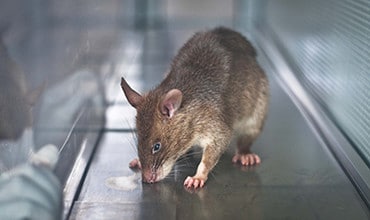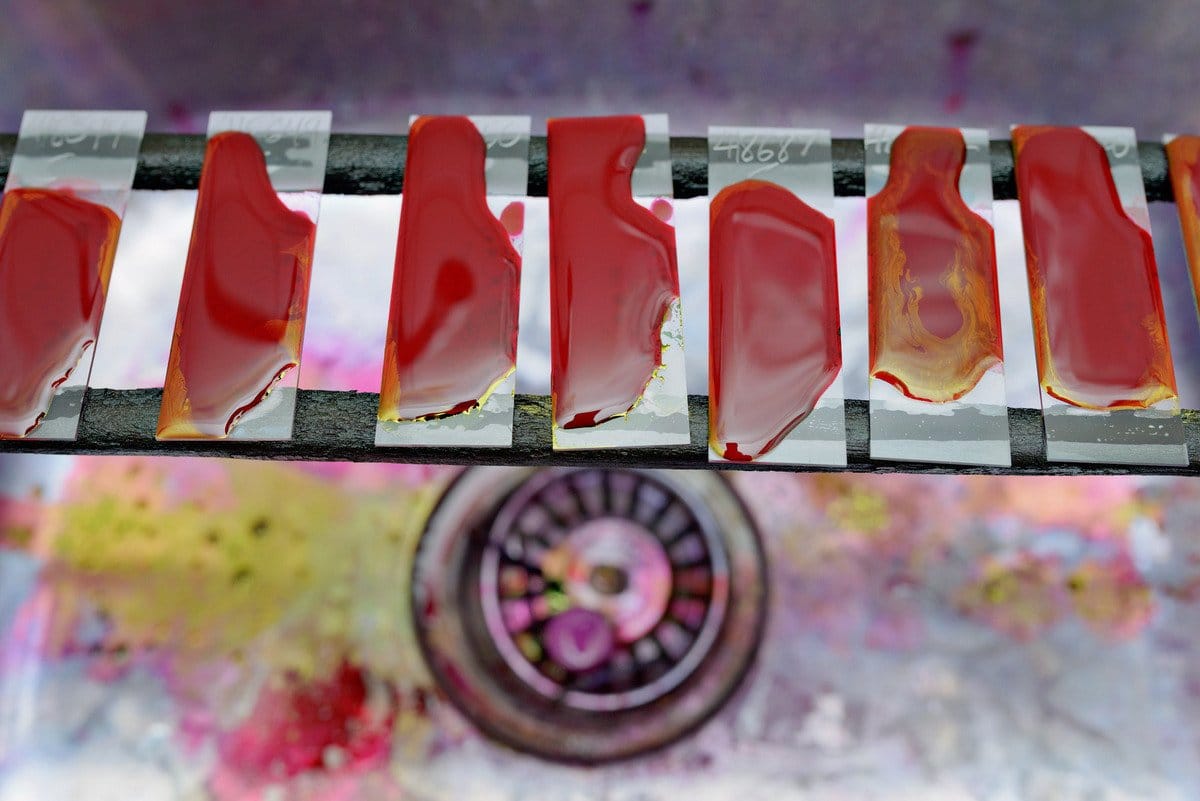RESEARCH
TEAM
R&D ADVISORY COMMITTEE
Accuracy study
In 2016 APOPO studied the accuracy of detection rats by comparing them with 1) the standard technology used in clinics (smear microscopy), 2) GeneXpert (very accurate but expensive) and 3) the gold-standard definitive culture (slow and expensive). This study found that the rats are significantly more sensitive than the smear microscopy used in clinics, that is, they are more likely to find TB-positive samples.
Volatile Organic Compounds (VOCs)

Low-prevalence populations
APOPO conducted research to evaluate the potential for detection rats to serve as the initial test for mass-screening activities of high-risk populations. For this study, 4,000 prisoners in Maputo and Morogoro were tested by the rats and by GeneXpert. In these populations, actual prevalence of TB is very low, ranging from 0.3% to 2%, as opposed to the 10% to 25% at TB clinics.
Generalization and indication times
Over the years, APOPO has developed and partially automated its “line cage” for training and deploying TB-detection rats. APOPO is also currently using this apparatus to investigate the basic variables that influence training success as well as explore alternative training paradigms. This research is conducted with well-defined scent samples commonly used in the fragrance industry, and is generously supported by the Firmenich Family.
Illegal wildlife detection
Illegal wildlife trade is a major and growing threat to biodiversity, and to the economic basis and security of the affected countries. The most widely trafficked mammals species in the world include pangolins, African elephants and rhinos, some of which now face possible extinction due to illegal trade.
Since 2016, APOPO, in partnership with the Endangered Wildlife Trust (EWT) of South Africa, has been researching the abilities of our African giant pouched rats to detect illegally trafficked wildlife products. Initial experiments, funded by the U.S. Fish and Wildlife Services (USFWS) and the Illegal Wildlife Trade Challenge Fund of the United Kingdom (UK), proved that our HeroRATs can be trained to detect pangolin scales and endangered African hardwoods, even when these wildlife products are hidden among other smelly items smugglers commonly used to conceal them.
With support from the German government and building on these positive results, APOPO is now expanding the wildlife items to be detected to include further highly endangered wildlife products. In parallel, we are developing novel strategies to deploy the rats to the challenging environments (such as shipping ports) where they can help support officials in detecting concealed wildlife contraband. We are collaborating closely with port and customs officials, experienced canine detection units, and the EWT to identify where the rats could be best positioned to support these searches.
This project is currently supported by the “Partnership against Poaching and Illegal Wildlife Trade”, implemented by GIZ on behalf of the German Federal Ministry for Economic Cooperation and Development (BMZ) and the German Federal Ministry for Environment, Nature Conservation and Nuclear Safety (BMU), as well as the World Conservation Network’s Pangolin Crisis Fund.

